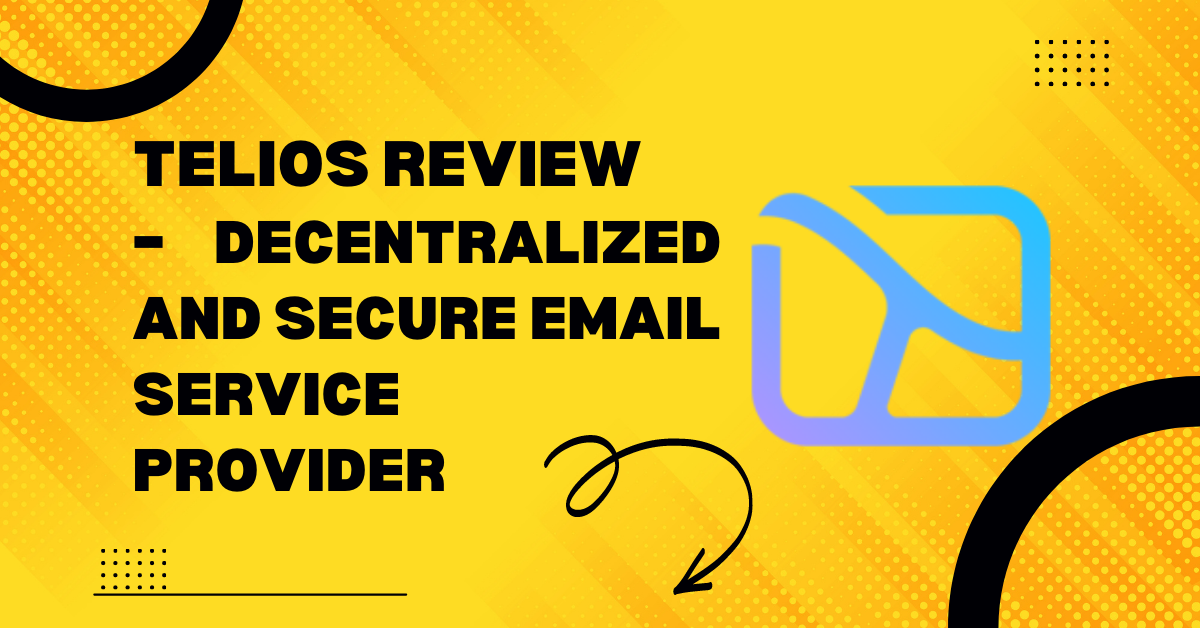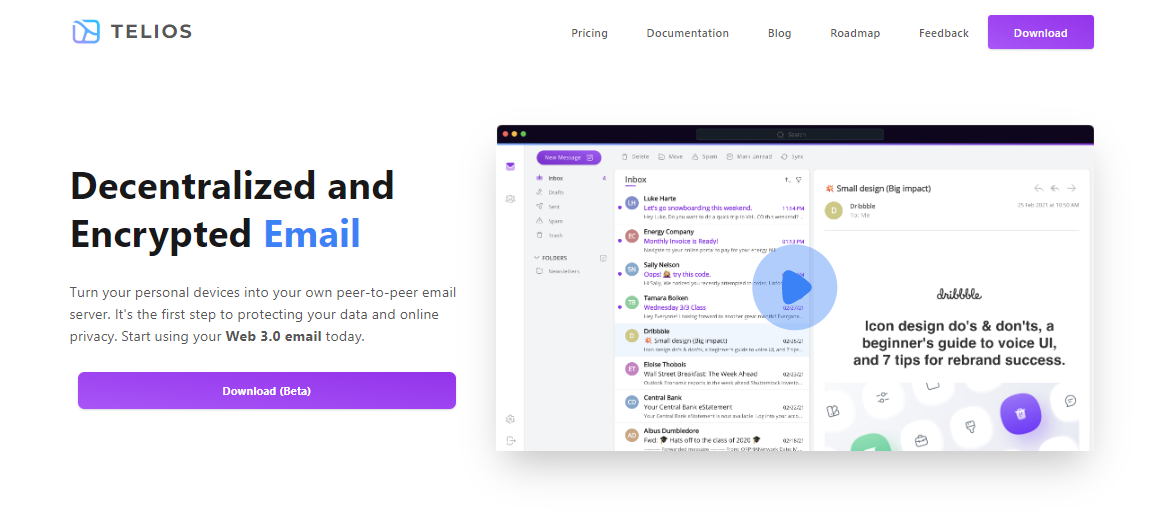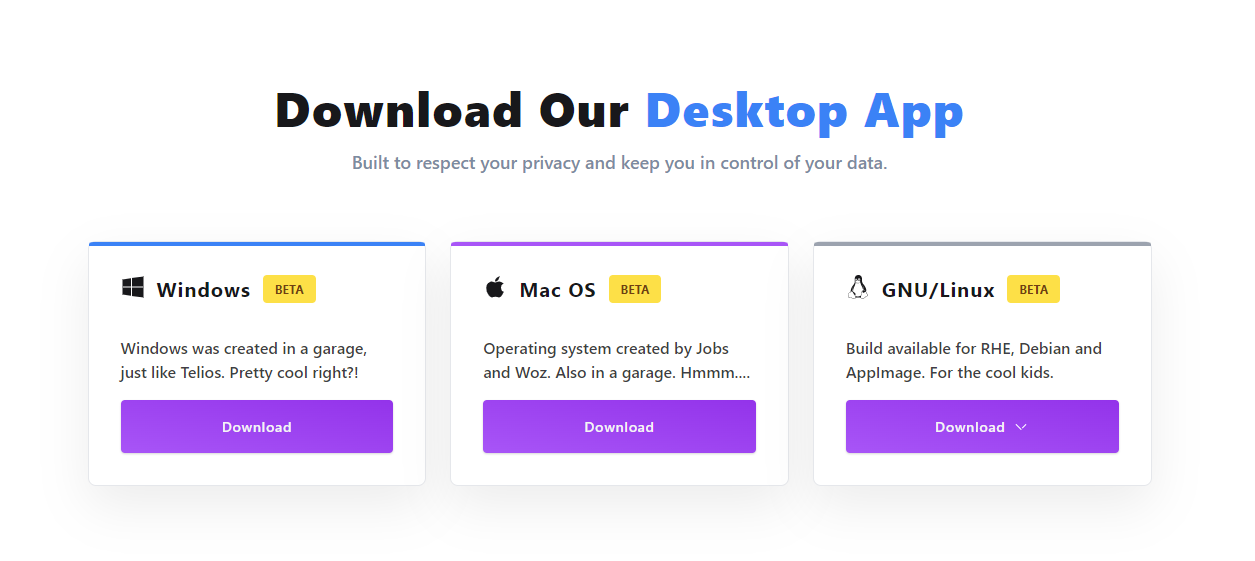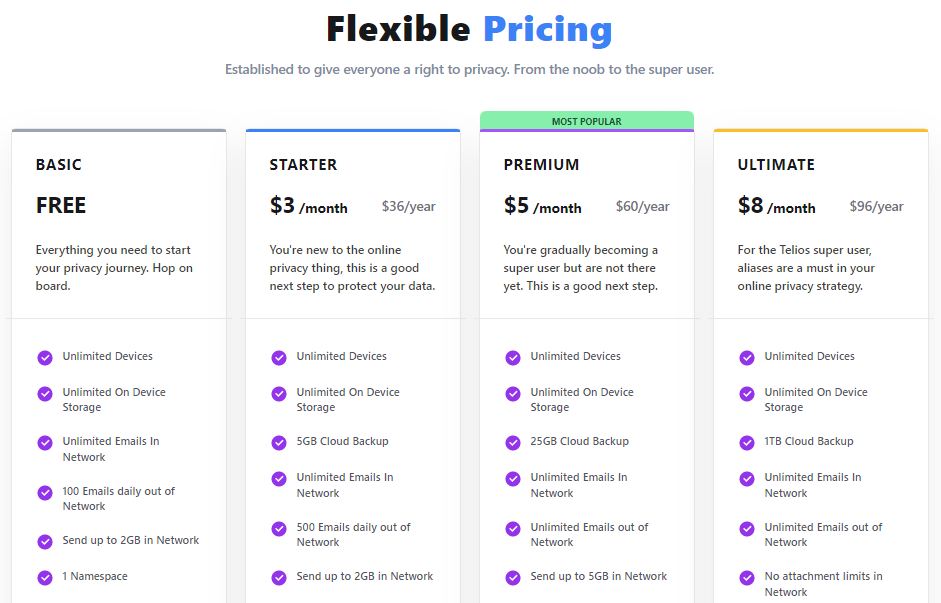This post will review Telios, a decentralized, secure, and encrypted email service.
Telios was a decentralized and encrypted Peer-to-Peer email service provider that promises high-level security using a P2P network to provide clients with secure and private email services.
How well can Telios secure your emails? Is sending and receiving emails via a P2P network more secure than the conventional email method? What competitive advantage does Telios have over other email service providers? You’re about to find out in this Telios review.
READ ALSO: Email Security Guide: Safeguarding Your Digital Communication
Table of Contents
What was Telios?
Telios was a private email services provider that allowed you to securely send and receive encrypted emails over a decentralized, peer-to-peer network, rather than the conventional centralized email servers.
It is an open-source project built on the Hypercore Protocol, which allows you to send and receive data over a peer-to-peer network without requiring a centralized server.
Hence, users do not have to worry about security issues such as server compromise via hacking, malware infections, DDoS attacks, server downtime, and maintenance, which are common with centralized security servers.
Telios is no longer operational; therefore, we recommend using a more reliable alternative, such as ProtonMail.
How To Sign Up For Telios Email Address
Signing up for a Telios account is a straightforward process that doesn’t require you to be an expert in IT. As a secure and anonymous email service provider, you cannot provide personal details while opening a Telios account.
- Download and run the Telios Beta version.
- You must accept Telios’ Beta consent, provide a recovery email, and store your passphrase while running the Telios Beta version for retrieval.
- Start sending and receiving emails using your new P2P Telios email account
Telios Features
Peer-to-Peer Network
Rather than using a centralized email server system, Telios utilizes a decentralized P2P system that puts you in control of your data.
When sending an email to a recipient on the Telios network, Discovery keys (comparable to a wallet address) are automatically created and stored on your local storage for each new Telios contact you save and use to send emails to your recipient on the Telios network.
Emails are streamed directly from your local drive by the recipient using the encryption key provided by the sender. Hence, your email is much safer and secure since it doesn’t have to pass through a centralized, third-party server, which can be subject to several external forces.
READ ALSO: How To Detect Email Phishing Attempts (Like A Geek!)
End-to-end Encryption
Telios utilizes the OpenPGP encryption protocol to encrypt and store users’ metadata on the API server, which contains instructions for retrieving emails from the sender’s drive.
Metadata encrypted includes timestamps, locations, and recipients’ RSA keys for decrypting the necessary information for retrieving email messages from the sender’s drive.
Hence, messages are secured since the message remains in the sender’s local drive and is only decrypted by the recipient’s device.
Open-source Nature
The Telios email client is an open-source project with a source that is easily accessible to Internet users. This makes Telios one of these secure and transparent email service providers.
Anonymous email service
When creating a Telios account, the Telios team will require your email address for recovery purposes, ensuring Telios is a privacy-focused email service provider.
Support For External Email Services
Sending email to non-Telios users is a simple process; messages are sent to external email addresses using the SMTP (Simple Mail Transfer Protocol) to deliver emails to the recipient’s external mailbox by the Telios mail server.
However, messages are sent as plain text for external users whose email providers do not support encrypted email services.
READ ALSO: A Simple Rundown Of Cryptocurrency And Blockchain Technology
Telios App platforms
Telios is in its Beta state because its apps are only available for Windows, Mac, and Linux OS.
However, mobile apps for Telios are under development, and Telios developers are working tirelessly to release the mobile app versions in a timely manner.
Therefore, you can download the appropriate app version for your device by visiting the Telios official web page.
Privacy Logs
Telios does not store users’ data, maintain a log of users’ activities, or store users’ metadata; therefore, Telios does not implement any data retention policies.
Customer Support
Telios does not offer phone support or live chat during its active time. However, you can receive support within 24 hours via email, the blog page, the knowledge base, and Discord.
I look forward to Telios adding more customer support features, such as LiveChat and phone support, while making it easy for users to access faster support services via email.
Although Telios’ FAQ is relatively basic and does not cover technical issues, it addresses concerns you might have.
You can receive fast support by joining the Discord server and contributing to the development of the Telios beta version.
Telios Pricing Plans
There are two categories of Telios users: free and paid users. Free users will have access to essential email services, including email accounts on all device types, unlimited storage, 2GB bandwidth allocation, one Namespace, five aliases, and community support.
Both free and premium users can send encrypted messages to non-Telios users.
Below are Telios’ plans
- Free plan: $0
- Starter Plan: $3 monthly, or $ 3 year yeard
- Premium Plan: $5 monthly, or $60 per year
- Ultimate plan: $8 monthly or $96 per year. The Starter Plan starts from $3 per month, depending on your preferred subscription plan, with additional features, including a 5GB encrypted cloud storage, a 500 emails daily limit for sent emails, and 10 Aliases.
These plans are flexible, and they vary in their features. However, all Telios P clans enjoy robust security features, including solid encryption protocols over P2P networks.
Telios should consider offering more flexible subscription packages by offering flexible discounts and promos for its subscribers.
TL;DR – Wrapping Up The Telios Review
To conclude this Telios review, here are the key takeaways:
- Telios is a new email service provider, still in its beta stage
- It utilizes a decentralized peer-to-peer network to provide email services to its subscribers. It is a more secure way of sending and receiving emails, as emails do not have to go through third-party, centralized email servers.
- Telios Subscribers can send and receive messages from non-Telios users, as it also features a mail server gateway for non-Telios users.
- Telios employs robust, strong encryption protocols to encrypt users’ metadata, including sender and recipient discovery keys, location, subject, and more.
- Emails sent and received are protected with end-to-end encryption.
- No data collection and adverts since it uses a P2P system to send and receive emails
- Free preplans plans and affordable premium subscription plans
- Telios app clients are not yet available for mobile devices
Based on the above points, I would gladly recommend Telios as a secure P2P email service provider for anyone seeking to secure their email and enjoy 100% privacy without worrying about digital footprint monitoring, cookie data collection, or annoying advertisements.
What’s your take on this Telios review?
INTERESTING POSTS
About the Author:
Daniel Segun is the Founder and CEO of SecureBlitz Cybersecurity Media, with a background in Computer Science and Digital Marketing. When not writing, he's probably busy designing graphics or developing websites.








